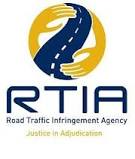 The system will come down hard on drivers, irrespective of whether they can afford to pay for their traffic sins or not. A driver will get a point for each offence committed.
The system will come down hard on drivers, irrespective of whether they can afford to pay for their traffic sins or not. A driver will get a point for each offence committed.
If they receive 12 points within three months, their licences will be suspended for three to 12 months, depending on the severity of the offence. And if a licence is suspended three times it will be cancelled altogether.
The department’s Road Traffic Infringement Agency has finalised its pilot project, conducted in Pretoria and Johannesburg since 2008, and the system will, after training of staff starting in October, be implemented across the country from April 2016.
The RTIA has compiled a list of 2450 infringements which could lead to demerits or, even worse, the cancellation of licences. There are about 30 serious offences which would lead to drivers being prosecuted and getting six points if found guilty by courts.
Vehicles will be taken off public roads if found with defaults. But with road deaths threatening to reach 1000 in KwaZulu-Natal this year, MEC for transport Willies Mchunu said he wanted the severe laws to start operating “now”.
According to RTIA chief operations officer Thabo Tsholetsane, the province is 96 percent ready for implementation.
Mchunu said the province had been winning the war against road fatalities, but it was set back two years ago when 11 people were killed in an accident after the reed dance ceremony.
Their focus on tightening up controls was increased when a runaway truck killed 24 people on Field’s Hill outside Pinetown in September 2013.
He said three years ago 613 people had been killed, the number had increased to 639 last year and this year it already stood at 714.
“Very soon we are likely to have more than 1000 deaths in one year. Many people commit traffic transgressions deliberately and arrogantly. We want people who do this to have their licences cancelled.”
But blue light drivers on duty would be exonerated provided they could justify how they were driving, he said.
Tsholetsane painted a bleak future for drivers who repeatedly broke the law, saying that if while having 12 points a driver committed one more offence, worth just one point, a licence would be suspended for three months.
“To get back to driving after the suspension you will have to go through rehabilitation.
“But if the licence gets suspended three times it will then be cancelled,” he said.
To get the licence back, a driver would have to go to a special driving school for training and a more difficult driving test. He said this would also go with psychological assessment, all paid for by the offender.
Criminal offences which would automatically score six points were: crossing a barrier line, driving under the influence of alcohol and exceeding the speed limit by more than 40km/h. Minor offences included not wearing seat belts (two points), cracked windscreen (one point), faulty lights (two points), exceeding the speed limit by 20 to 40km/h (three points).
The Road Traffic Infringement Agency was still working on a policy which would make it easy to notify offenders about their points through social networks, since it took too long to communicate via the post office.
Offenders could appeal to the Administrative Adjudication of Road Traffic Offences.
